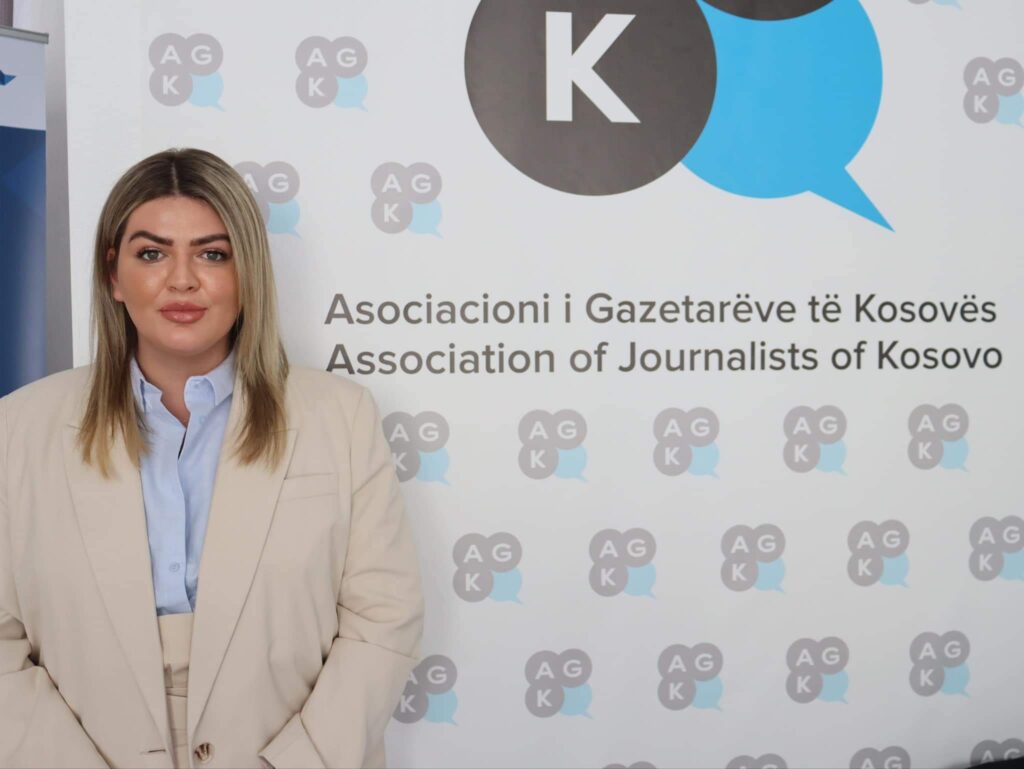
Getoarbë Mulliqi is a scriptwriter, playwright, and columnist, from Prishtina, Kosovo. Her feature-length movie titled “NJË TRRGIM PRISHTINE” (A Prishtina story) was supported by the Kosovo Cinematography Center in 2015. In 2022, the Film Fund in North Macedonia supported her second feature “Parku i Dorës” (Dora’s Park), co-written with Prof. Dr. Haqif Mulliqi.
Over 15 student films and short films have been made based on her scripts. She has also worked as a film director for the movie “Vetëm një rrugë” (ONE WAY) and several other artistic shorts, as well as documentaries (mainly commercial). Getoarbë Mulliqi has published the drama “I dashur i panjohur” which was staged at the Tetovo Theater. In 2012, her dramatization “The Lovers of Picasso” was staged at the National Theater of Kosovo.
She has written four duodramas and three dramatizations: “The Lovers of Picasso,” “Prekazet,” and “The General of Blue Nylons.”
Since 2015, she has been lecturing at the Evolucion Academy of Arts and has dedicated the past three years to RRITU E MËSO, the first Albanian platform exclusively for children.
Since 2008, she has also been involved in literary criticism and theater. Currently, she is the Executive Director at the Association of Journalists of Kosovo and an independent writer/producer of creative content.
You are working as executive director of the Kosovo Journalist Association. Can you please present us your organisation
1. The Association of Journalists of Kosovo is a Non-Governmental Organization, established in 2002. Currently, AJK has over 900 members, including journalists, editors, photojournalists, and cameramen. The main mission of AJK is to protect and promote the rights of media workers and advocate for Media Freedom. As the sole organization of its kind in the country, AJK also focuses on enhancing journalists’ capacities through training, workshops, study visits, and other engagements. Additionally, AJK plays a crucial role in advocating for media freedom, including safeguarding freedom of expression, speech, and opinion. Given the absence of a comprehensive Trade Union for private sector media workers, AJK also serves as a union. Moreover, AJK runs a unique program, the Journalists in Residence program, which provides shelter to Ukrainian and Afghan journalists.
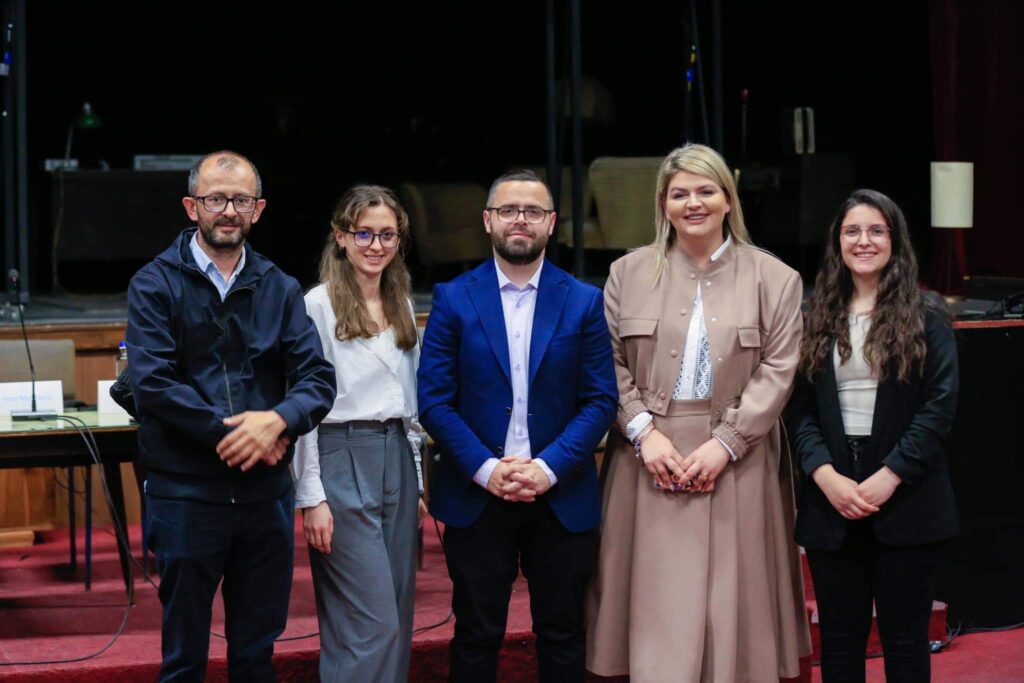
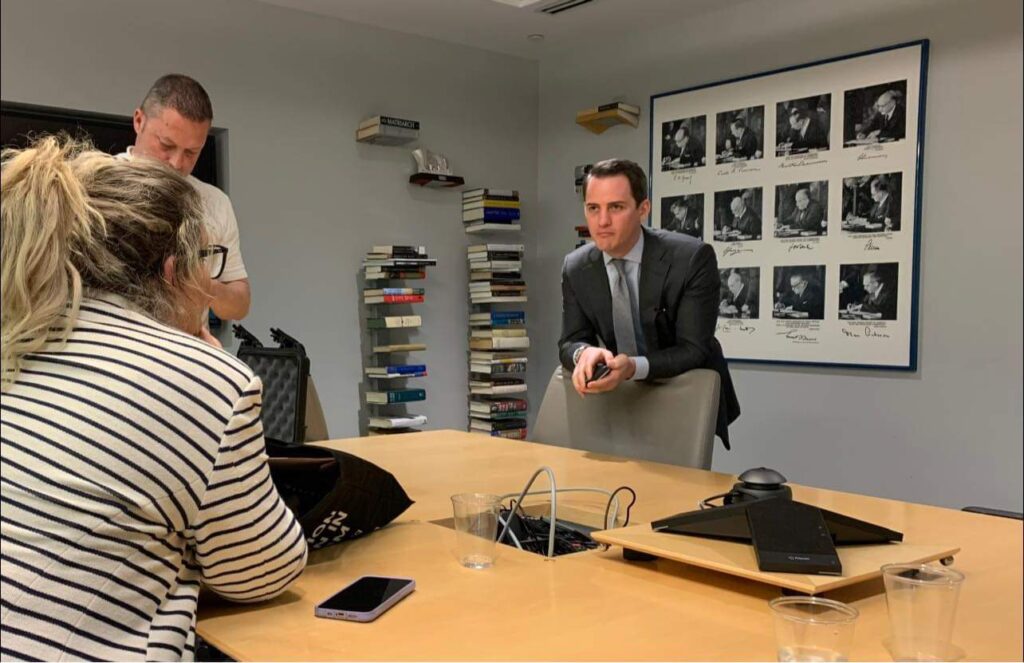
What you did before you started to work for AJK?
2. My involvement with the Association of Journalists of Kosovo began in June 2020. Prior to this new role, I primarily worked as an independent artist and a Faculty Lecturer. I completed my studies at the Journalism Faculty of the University of Prishtina and pursued Playwriting at the Faculty of Fine Arts in Prishtina. Growing up in a family of journalists, I naturally gravitated towards journalism, considering it more than just a profession but a personal mission. Journalism, to me, is not merely a profession but a calling to be part of positive change.
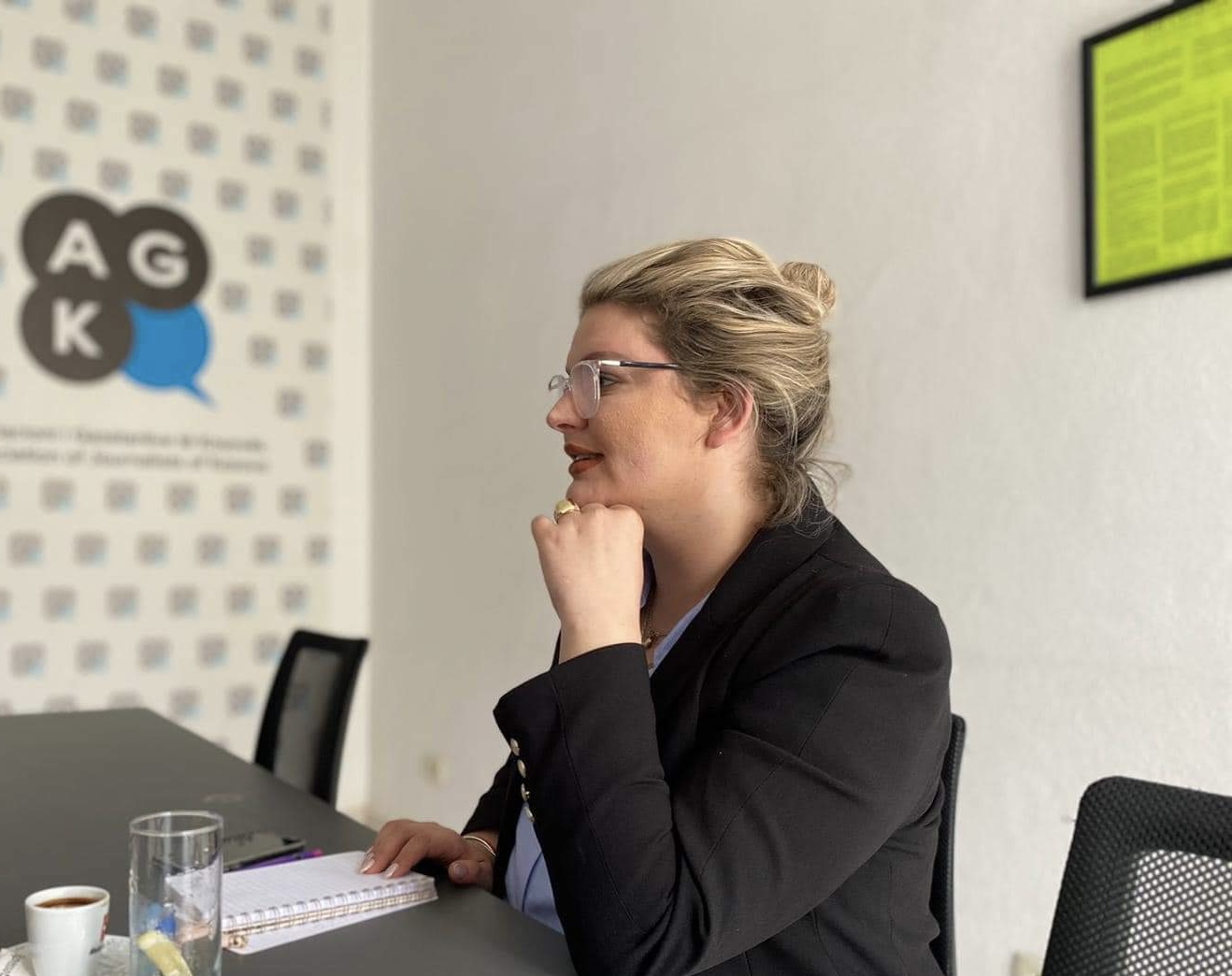
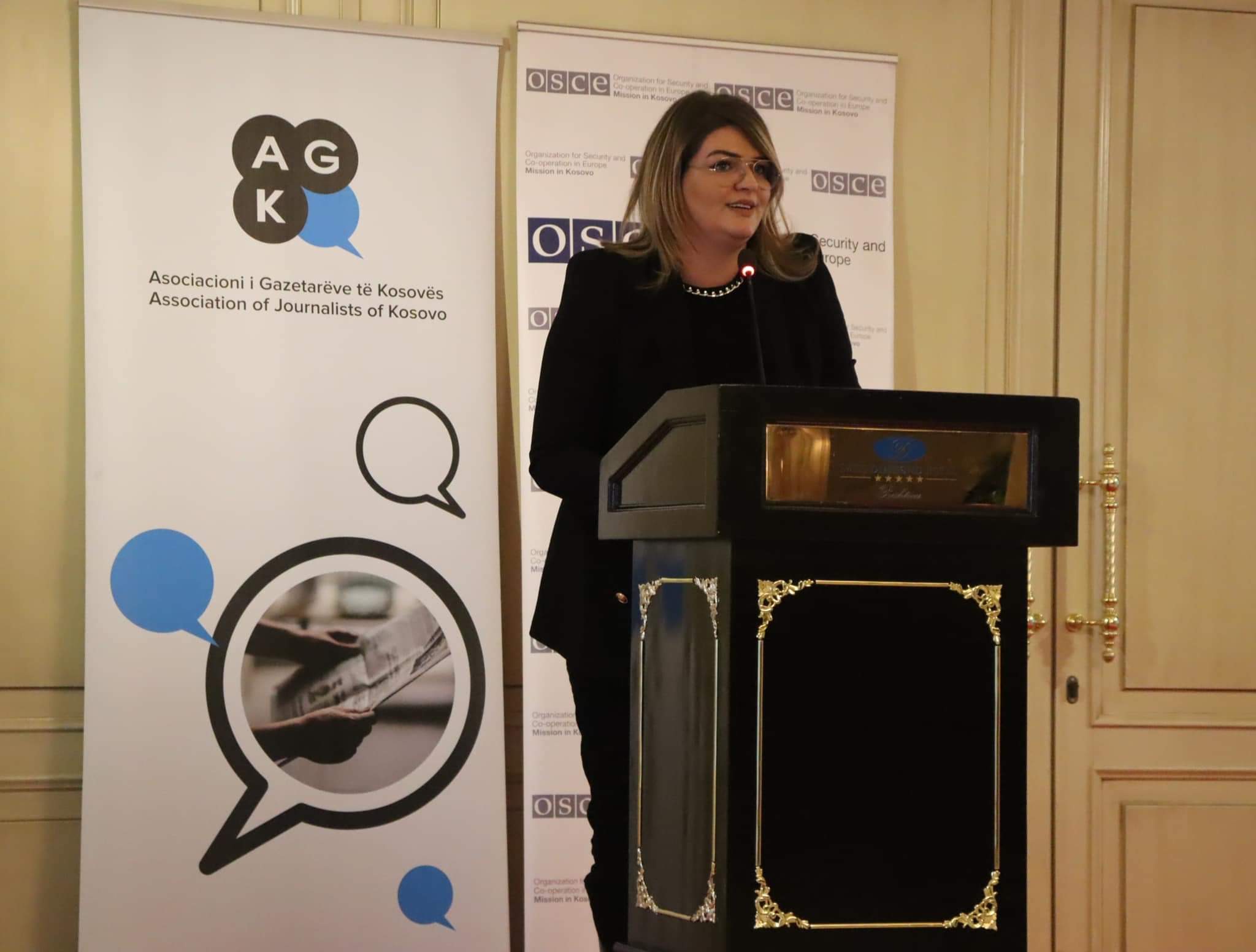
How is the regional cooperation between AJK and other organisations in this part of Europe?
3. AJK’s collaboration with associations and unions sharing similar missions is remarkable. The SafeJournalists Network is a prime example, uniting organizations from Kosovo, Bosnia and Herzegovina, Serbia, North Macedonia, Albania, Montenegro, and Croatia. This joint platform operates as a united entity advocating for media workers across these countries. Our participation in the SJN has fortified our mission and amplified our voices globally, beyond local boundaries. This cooperative model demonstrates effective regional collaboration for the greater good, particularly in advancing Journalists’ Safety and Media Freedom.
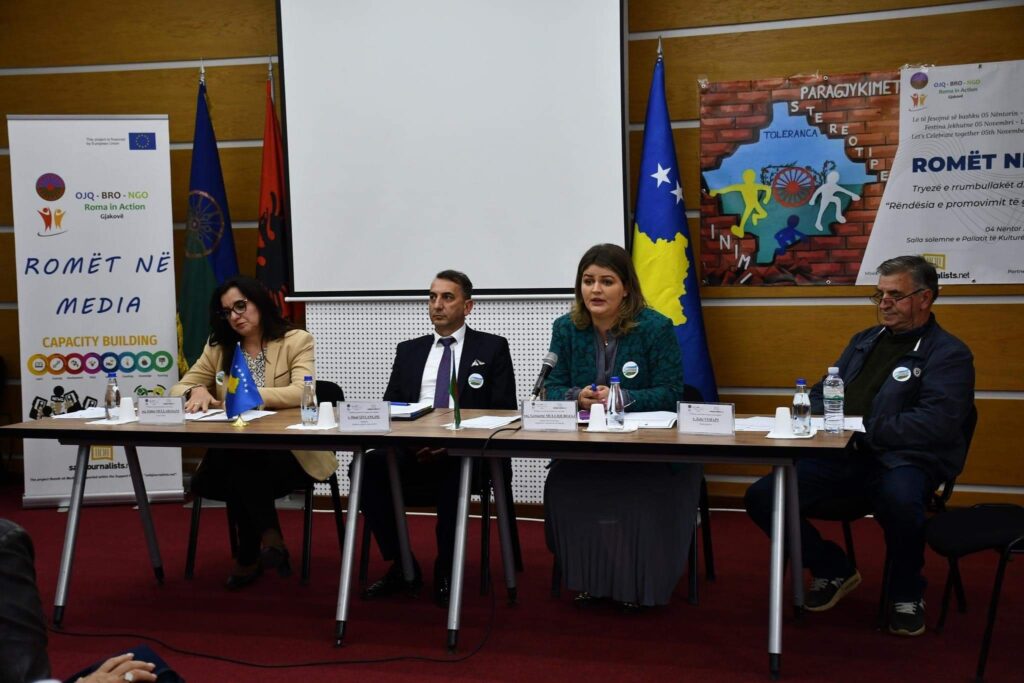
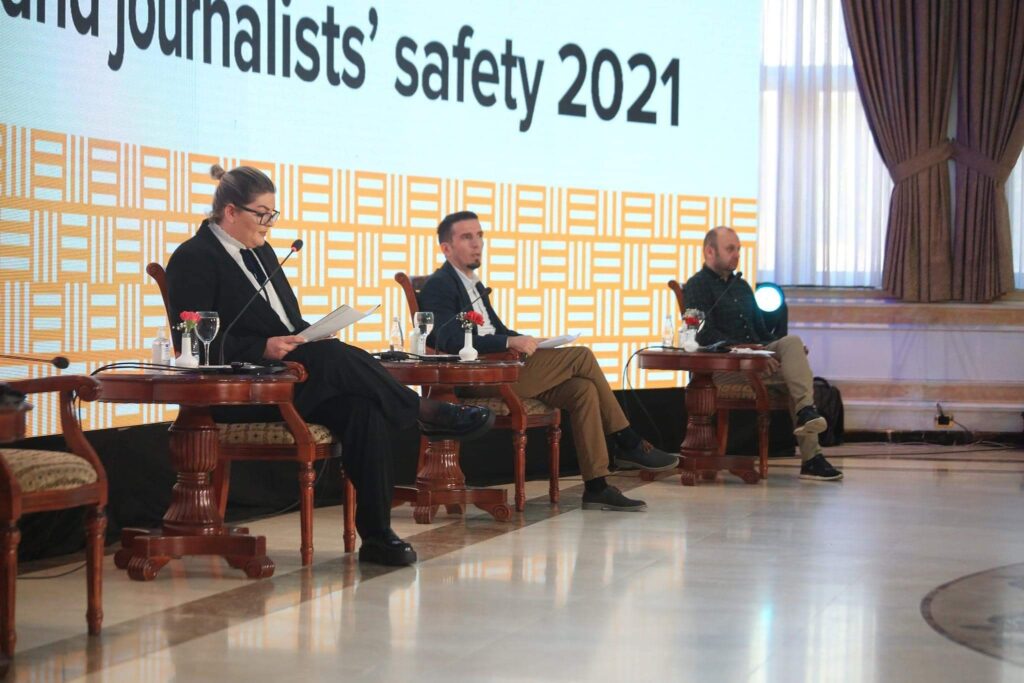
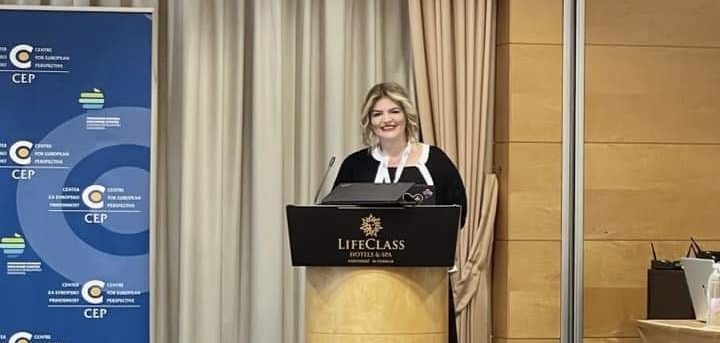
How you would describe the media situation in Kosovo today?
4. Kosovo’s media industry is struggling with significant challenges, as it aggravated post-pandemic. Economic hardships and shifts towards online platforms have compelled many newspapers to cease print operations entirely since March 2020. Local and non-majority community media outlets face severe financial constraints, while the increasing attacks on journalists and media workers create a hostile work environment. The uptick in assaults on media personnel in 2023, alongside their escalating severity, adds to the already burdensome conditions faced by media professionals.
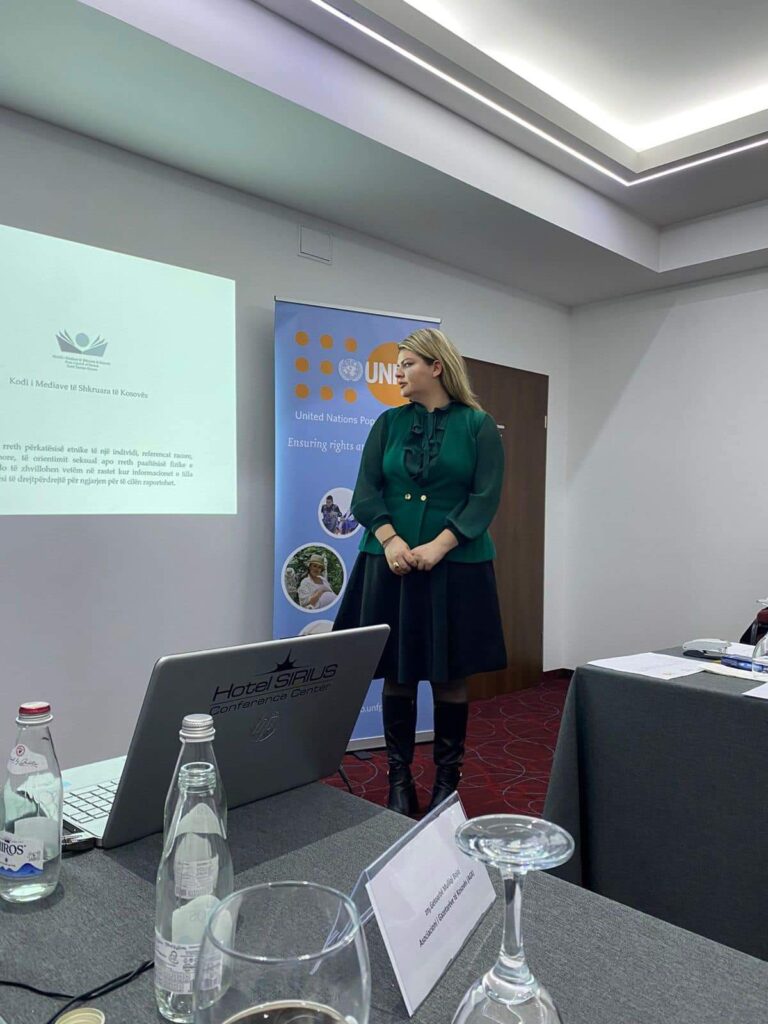
There are lot of problems in the media in Kosovo as result of political influence and decisions. What can journalist do against political influence?
5. Kosovo has a very pluralistic media landscape that plays a crucial role in fostering democratic dialogue and holding those in power accountable. However, similar to other countries, especially in the region, Kosovo’s media sector contends with political pressures and tendencies for interference, posing threats to journalistic integrity and press freedom. Journalists in Kosovo are actively preserving their independence and upholding professional standards by promoting transparency, adhering to ethical guidelines, resisting external pressures, building networks, and advocating for critical issues affecting Kosovo’s citizens.
6. Haqif Mulliqi, was not only my father but also a source of enduring motivation and inspiration, and he has left an indelible impact on me and those fortunate enough to encounter him. His significant contributions to journalism and arts echo throughout our society. Though his untimely departure cut short his potential contributions, his legacy endures. He profoundly influenced my personal and professional growth, assuming roles as a mentor, advisor, and supporter. Despite the irreplaceable void his absence has left, his influence continues to shape my journey in profound ways. Our relationship, marked as “agreeing to disagree” in most cases, has been instrumental in shaping my character. His unwavering belief in my abilities has driven me to push my limits and constantly challenge myself. His absence has underscored the significance of striving to make him proud, driving me to persevere and uphold his values as if he were still by my side.
